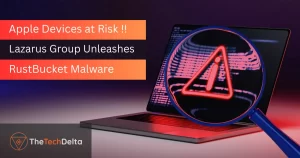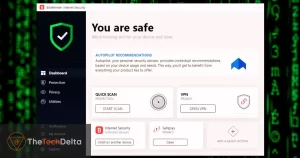In a concerning turn of events, Microsoft has revealed that the recent service outages plaguing its Azure platform were not mere technical glitches. After initial hints, the technology giant has now confirmed that the disruptions were, in fact, orchestrated by insidious Layer 7 Distributed Denial of Service (DDoS) attacks. These malicious cyber-attacks targeted the application layer, causing severe customer accessibility issues and leaving the company and its clients grappling with the aftermath. This alarming revelation sheds light on the growing sophistication and audacity of threat actors seeking to cripple vital online services.
Understanding Layer 7 DDoS Attacks
Layer 7 DDoS attacks pose a significant threat as they directly target the application layer of services. These sophisticated attacks inundate the targeted systems with an overwhelming volume of requests, causing severe disruptions. The sheer magnitude of these requests overwhelms the system’s capacity, leading to service hang-ups and rendering them incapable of processing legitimate user traffic. Microsoft has recently disclosed that their services fell victim to such an attack, orchestrated by the threat actor known as Storm-1359.
This revelation underscores the escalating sophistication and danger posed by cybercriminals in their relentless pursuit to disrupt essential online services.
Anonymous Sudan Storm 1359 The Threat Actor
Anonymous Sudan, commonly referred to as Storm-1359, emerged in January 2023. They declared their intention to conduct attacks against any country opposing Sudan. Since then, the group has been targeting organizations and government agencies worldwide through DDoS attacks and data leaks. Anonymous Sudan’s recent focus has been on demanding payments from large organizations to halt the attacks.
Anonymous Sudan’s Campaign and Targeting
The campaign began with Scandinavian Airlines (SAS) in May, where the threat actors demanded a ransom of $3,500 to cease the DDoS attacks. Subsequently, they shifted their attention to American companies, including Tinder, Lyft, and several hospitals in the USA. In June, Microsoft became their latest target, and the group initiated DDoS attacks on Outlook, Azure, and OneDrive. They demanded a staggering $1 million to halt these attacks.
Motives and Claims
Anonymous Sudan stated that their attacks on American companies were in response to the USA’s involvement in Sudanese politics. However, cybersecurity researchers suspect that the group’s true origin may be linked to Russia, considering certain indicators. Anonymous Sudan has further claimed to form a “DARKNET parliament” comprising other pro-Russia groups, raising concerns about potential attacks on European banking infrastructure.
Potential Implications for European Banking Systems
Although there is no evidence of attacks on European banking systems at this time, the resources exhibited by Anonymous Sudan warrant caution. The group has threatened to impose sanctions on European banking transfer systems, including SEPA, IBAN, WIRE, SWIFT, and WISE. Financial institutions should remain vigilant and prepared for potential disruptions.
Conclusion
Microsoft has confirmed that the recent service outages were a result of Layer 7 DDoS attacks orchestrated by Anonymous Sudan, also known as Storm-1359. This threat actor has been actively targeting organizations and government agencies, demanding ransom payments to cease their DDoS attacks. While Anonymous Sudan initially claimed their actions were in protest against US involvement in Sudanese politics, there are indications suggesting a potential link to Russia. Financial institutions in Europe should be cautious, as the group has threatened to target European banking infrastructure. Ongoing monitoring and preparedness are essential to mitigate potential disruptions.
As the cybersecurity landscape continues to evolve, it is essential to stay informed about emerging threats and developments. I would highly suggest you to visit our CyberSecurity section to enhance your defenses and stay ahead of evolving cyber threats.
If you found these cybersecurity updates valuable, don’t miss out on more exclusive content. Follow us on Twitter and Instagram to stay informed about emerging threats and developments. Join our community and gain access to the latest cybersecurity trends to bolster your defense against evolving risks.



